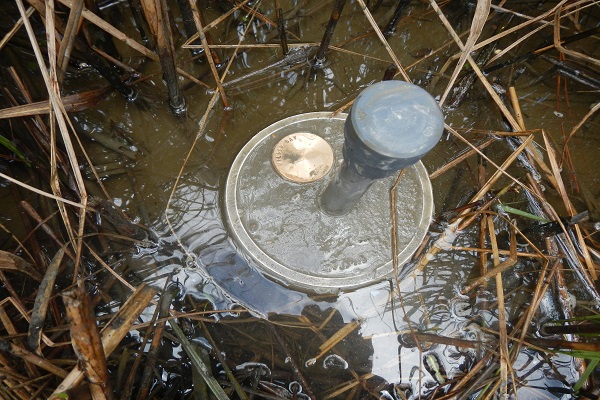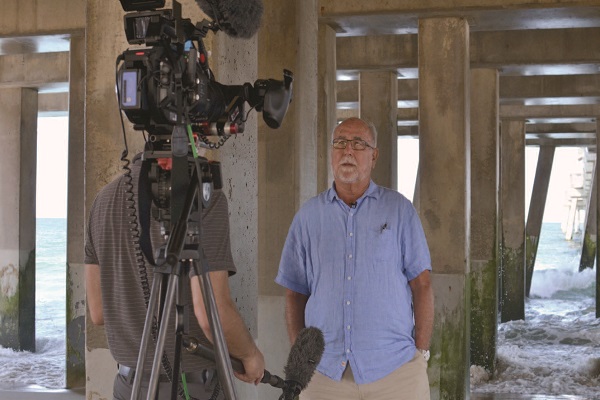SCIENCE AT WORK: BUILDING STRONGER COASTAL COMMUNITIES
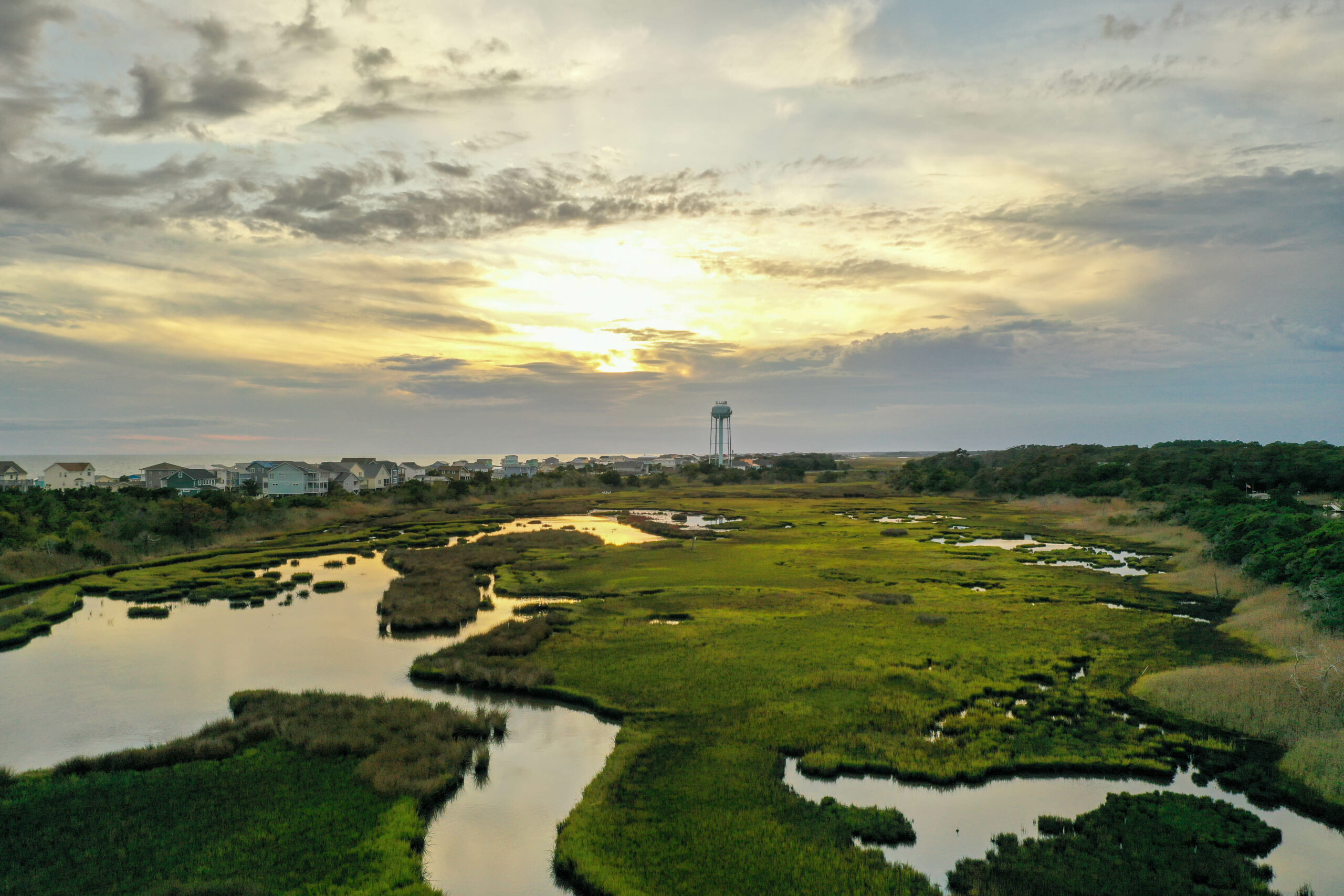
North Carolina Sea Grant’s efforts encompass topics in development, economies, ecosystems and traditions related to the state’s coast.
Communities embody the concept, as they have weathered many storms. These days, the word also encompasses planning for and responding to a variety of economic and environmental challenges.
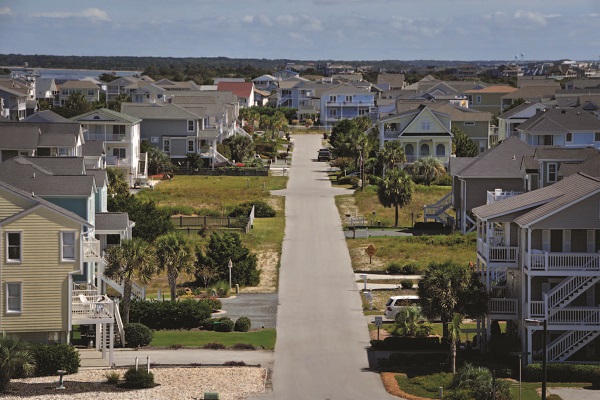
Resilience is a key theme for North Carolina’s Coastal Conference on April 4 and 5 — and long has been a focus for North Carolina Sea Grant’s work with coastal communities.
“We are bringing science to the table in helping to understand their specific challenges and making links to expertise across the state,” explains Susan White, Sea Grant executive director.
“We develop and leverage partnerships so that spaces and places along our coast, and in the watersheds, are safe and healthy — not only for the residents but also for millions of visitors,” she adds.
Those efforts have earned national praise. As part of an assessment conducted by the National Sea Grant College Program, “an external performance review panel found that North Carolina Sea Grant exceeded their expectations, given the federal investment,” Jonathan Pennock, National Sea Grant director, notes in a summary letter.
“Many panelists that focused on your coastal community hazard resilience efforts deemed your program to be among the highest performing in the Sea Grant Network,” describes Pennock, who will join the April conference.
Those efforts range from hosting community visioning sessions and identifying policies that may help lower insurance premiums to training contractors in better roofing and other construction techniques.
Speakers at North Carolina’s Coastal Conference include Craig McLean, assistant administrator of Oceanic and Atmospheric Research for the National Oceanic and Atmospheric Administration, and Mike Sprayberry, director of North Carolina Emergency Management.
As the conference looks to a range of emerging issues, it will include graduate students already on pathways to be future leaders on coastal topics — another Sea Grant focus area earning national recognition.
“Your fellowship programs, in particular, represent best practices that should be considered in other Sea Grant programs,” Pennock adds.
White agrees: “The fellowships allow us not only to focus on student training, but also to reach into and across varied disciplines.” Many fellowships represent partnerships, such as with N.C. Space Grant, N.C. Division of Marine Fisheries and the N.C. Coastal Reserve.
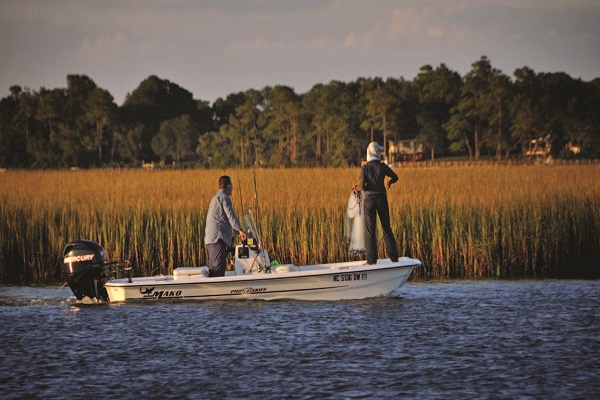
Sea Grant’s training for graduate and professional students has expanded so that in addition to working with mentors on field experiences and data analysis, these up-and-coming researchers are challenged to communicate their findings beyond their immediate colleagues.
“That may start through collaborative research with community partners offering perspectives; then move into discussing findings with local, state and federal policy makers; and even developing lesson plans for youngsters in classrooms and informal learning centers,” White adds.
Such efforts are part of Sea Grant’s legacy and future in North Carolina.
“We are embedded in the state,” White says, crediting the tradition of excellence set by past directors and staff. “Communities continue to look to Sea Grant to get access to information and resources they need to make decisions. Sea Grant is able to facilitate that conversation.”
With the Coastal Conference this spring, North Carolina Sea Grant winds down a yearlong celebration of the 40th anniversary of its designation as a full Sea Grant College Program in 1976.
But its impacts can be traced to the 1960s, with the first Sea Grant-funded projects in the state, including seminal studies in ecology and advances in seafood-processing safety and technology.
Moving forward, the program’s updated strategic plan builds upon traditional strengths, while also illuminating current and anticipated needs. This could include expanding efforts to identify connections between human health and the coast — such as potential new pharmaceuticals, as well as better and faster ways to address water-quality problems.
The recent federal reviews — including praise for innovative, relevant and effective partnerships and outreach — bode well for the future.
“North Carolina Sea Grant is a well-managed, cost-effective and impactful program that provides valuable services to your stakeholders,” Pennock writes. “And your successes contribute to the strength of the National Sea Grant College Program.”
White concurs, noting that the research focus is woven through extension, communications and education efforts.
She especially credits the expertise that the administrative and outreach team — with offices in Raleigh, Wilmington, Morehead City and Wanchese — brings forth each day.
“Having that energy from our team is wonderful,” she says.
IN OUR OWN WORDS
In the Winter 2017 issue, Coastwatch offered an overview of recent activities by North Carolina Sea Grant-funded researchers.
In this issue, we turn to our team for examples of their current efforts. While our mission always will be outreach and education, there are many ways to slice this pie.
How are these efforts designed to strengthen communities, make our coast healthier, and identify the next steps we need to take? In the articles below, some of our staff explain how they serve North Carolina, its people and its coast.
- Building a Blue Economy in North Carolina
- Developing New Seafood Products
- Watching and Learning About North Carolina Sea Grant
- Fishing for Feedback
- Linking Water, Floods and Public Health
- Spreading the Word About Southern Oysters
- Expanding Marine Education from Sea to Mountains
This article was published in the Spring 2017 issue of Coastwatch.
For contact information and reprint requests, visit ncseagrant.ncsu.edu/coastwatch/contact/.
- Categories:
